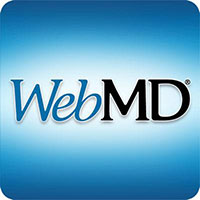Why Clinicians’ Spiritual Health Matters in the COVID-19 Crisis
[ad_1]
What your doctor is reading on Medscape.com:
APRIL 12, 2020 — On Friday, March 20, an identity-protected Georgia physician told CNN’s Sara Sidner, “It’s the first time in my career that I’ve been afraid.”
The COVID-19 pandemic would be frightening even without insufficient ICU beds or ventilators. But when shortages of personal protective equipment (PPE) have prompted the CDC to recommend that providers reuse their “one-time-use only” face masks, healthcare professionals now find themselves vulnerable and exposed in literal and unprecedented ways.
Clinicians have always spent their careers on the tenuous threshold separating life and death. Never in our lifetimes, however, have the existential concerns of clinicians themselves been made quite so legible. And never in recent history have they faced the complex moral questions that this public health emergency will inevitably provoke.
The impact of clinician well-being on patient perceptions and quality of care was substantiated well in advance of this coronavirus outbreak. More than merely a health crisis, the pandemic is also a global spiritual event. Attending to the spiritual well-being of clinicians is well aligned with current recommendations published in Annals of Internal Medicine to “deploy designated wellness champions in health care systems and practices to field clinicians’ concerns.” Efforts to demystify the discipline of spiritual health will be helpful to these initiatives in the difficult days ahead.
A few notes to help clear the way:
“Who believes in that stuff?”
More of us than many of us might think.
Western medicine makes its home in a rationalist environment that appropriately relies upon scientific evidence to ensure ethical care. At this moment in human history, however, it’s worthwhile to recognize the contemporary healthcare setting as a cultural backdrop all its own, a meeting ground for the clinical encounter that is governed by a distinct set of accepted beliefs, norms, and values.
One consequence of the Cartesian dualism that dominates Western medicine is the survival of a 20th-century artifact: a persisting association of spirituality with anti-intellectualism. This is frequently observable in the comments sections of online articles about medicine and spirituality. It is also representative of a striking disconnect: 95% of Americans and 76% of US physicians believe in G-d, a universal spirit, or a higher power.
Continued
To be clear, these individuals might not be religious—many might never set foot in a house of worship—but they still believe in G-d or Something.
Hence, despite the increased emphasis of recent years on patient-centered care, healthcare remains culturally oriented to “Other-ing” those whose scientifically unproven spiritual beliefs help them navigate the existential crisis of illness. This can engender a “splintering of the selves” among the majority of clinicians who secretly share those unproven spiritual beliefs. Rather than risk professional embarrassment, the spiritual needs of healthcare professionals are often suppressed and left at loose ends.
“What spiritual needs? I honestly believe there’s nothing out there.”
Even among those who believe there’s nothing “out there,” there is still something “in here.”
Spirituality, which may or may not include identification with a Divine being, a specific faith group, or religious practice, is aptly defined as “the aspect of humanity that refers to the way individuals seek and express meaning and purpose and the way they experience their connectedness to the moment, to self, to others, to nature, and to the significant or sacred. “
Connectedness, meaning, and purpose are essential human needs that are as true for all healthcare professionals as they are for everyone else. This is the essence of spiritual health.
How can contemporary professional chaplains help their colleagues?
Board-certified healthcare chaplains (and chaplains working/training under the auspices of board-certified chaplains in USDE- or ACCET-accredited clinical pastoral education [CPE] programs) are extensively trained to witness and accompany persons across all belief systems, including secularism. We are a built-in resource for hospital staff and administrators alike.
Board-certified chaplains do not proselytize and we are not mental health professionals. We read the subtitles of human interaction and help persons to engage with meaning-making by drawing from their own belief systems. Just like the way chaplains formulate, relay, and execute spiritual care plans for patients and families, we can also help clinicians and healthcare leaders strategize and plan for their own spiritual self-care and that of their teams.
Leadership matters
As New York Governor Andrew Cuomo succinctly and skillfully recommended at his March 23 press briefing, the current goal for most of us should be to stay “socially distanced, spiritually connected.” For clinicians on the frontlines who do not have the luxury of social distancing, specific workplace encouragement to tap any and all of their best inner resources may be especially beneficial.
Continued
Healthcare leaders who are willing to create initiatives to meet spiritual needs within their organizations and, more important, who are willing to be seen using and advocating for using those resources are uniquely positioned to inspire a cultural shift.
The ability to spiritually connect with ourselves, with others, and with whatever/Whoever deeply sustains us is vitally important to our well-being as we scale this unnerving societal hurdle. May we all feel the freedom to attend to our spiritual health, and in doing so, may we recognize that we are also legitimately helping to sustain our patients, our colleagues, our families, and the world.
Elizabeth J. Berger is an advanced practice, board-certified chaplain and a graduate of Columbia University’s master of science program in narrative medicine. Named a 2020 Top 100 Healthcare Leader by the International Forum on Advancements in Healthcare, Elizabeth speaks about spirituality in medicine. Elizabeth teaches medical humanities and professional formation at Donald and Barbara Zucker School of Medicine at Hofstra/Northwell. She is also an ordained member of the Jewish clergy. Contact her at [email protected].
[ad_2]
Source link




protonix classification
protonix side effect
repaglinide category
robaxin 500 mg